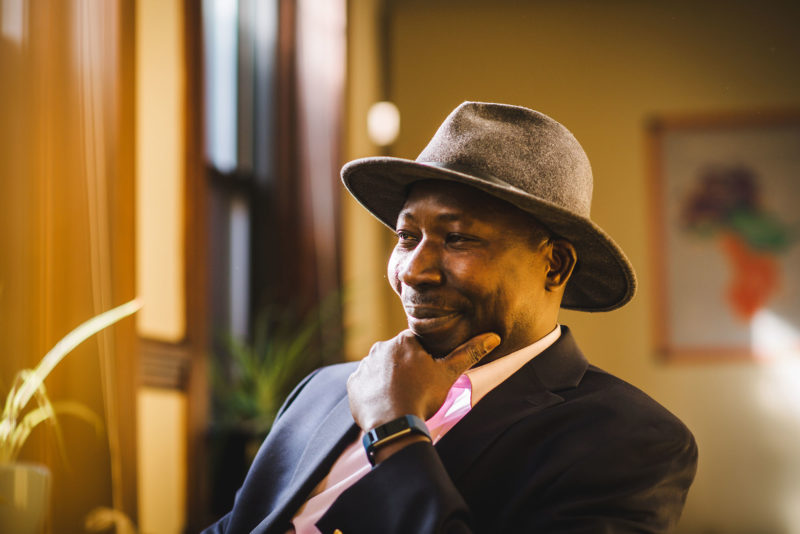Unearthing a Long-Ignored African Writing System, One Researcher Finds African History, by Africans
Share
Explore Our Galleries
Breaking News!
Today's news and culture by Black and other reporters in the Black and mainstream media.
Ways to Support ABHM?
By Molly Callahan, The Brink
BU anthropologist Fallou Ngom discovered Ajami, a modified Arabic script, in a box of his late father’s old papers

When his father died in 1996, Fallou Ngom returned to Senegal from where he was teaching French and linguistics at Western Washington University in Bellingham, Wash. Ngom participated in the funeral services, spent time with his family, and collected some of his father’s belongings to bring on the daylong flight back with him.
A box of his father’s old papers—various to-do lists, dashed-off ideas, deeds, receipts, and other ephemera that collect throughout a life—lay dormant in a corner of Ngom’s office for nearly a decade before he opened it. He couldn’t have known it at the time, but waiting for Ngom inside this box was a scrap of paper that would alter the course of his life and the lives of countless others.
In 2004, when he dusted off the box and sat down to sift through these tokens of his father’s life, Ngom found something confounding: a note, scribbled in his father’s hand, about a debt he owed a local trader. The note was doubly surprising. First, Ngom had thought his father was illiterate—he didn’t read French, the official language of Senegal. But the note wasn’t in French, it was in a script that looked like Arabic, but sounded like Wolof, a regional West Atlantic language.
[…]
“That’s when I realized: we’ve been told that these people are illiterate, and they’re absolutely not,” says Ngom, a Boston University College of Arts & Sciences professor of anthropology.
Ngom needed to know more. He applied for a postdoctoral fellowship in 2004 to travel to West Africa and dig into this surprising writing system. Tellingly, it was BU’s West African Research Association that granted Ngom’s postdoc—albeit years before he would join the University’s faculty.
Read about Ngom’s journey to Africa to learn about this writing.











Comments Are Welcome
Note: We moderate submissions in order to create a space for meaningful dialogue, a space where museum visitors – adults and youth –– can exchange informed, thoughtful, and relevant comments that add value to our exhibits.
Racial slurs, personal attacks, obscenity, profanity, and SHOUTING do not meet the above standard. Such comments are posted in the exhibit Hateful Speech. Commercial promotions, impersonations, and incoherent comments likewise fail to meet our goals, so will not be posted. Submissions longer than 120 words will be shortened.
See our full Comments Policy here.